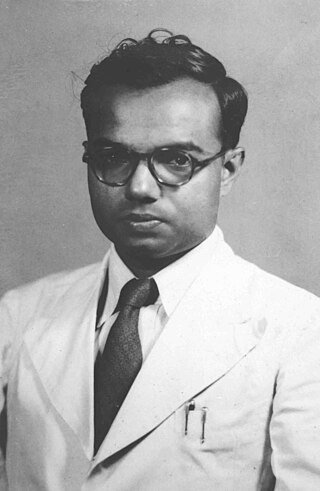The General Certificate of Education (GCE) is a subject-specific family of academic qualifications used in awarding bodies in England, Wales, Northern Ireland, Crown dependencies and a few Commonwealth countries. For some time, the Scottish education system has been different from those in the other countries of the United Kingdom.

The Open University of Sri Lanka is a national university in Sri Lanka. It is unique within the Sri Lankan national university system for being the only university to offer programs of study leading to certificate, diploma, degrees and postgraduate degrees up to PhD level through the Open and Distance Mode of Learning (ODL). The degrees awarded by the university are treated as equivalent to degrees awarded by any other Sri Lankan University under the preview of the University Grants Commission.

Education in Sri Lanka has a long history that dates back two millennia. While the Constitution of Sri Lanka does not provide free education as a fundamental right, the constitution mentions that 'the complete eradication of illiteracy and the assurance to all persons of the right to universal and equal access to education at all levels" in its section on directive principles of state policy at (27. Sri Lanka's population had an adult literacy rate of 96.3% in 2015, which is above average by world and regional standards. Computer literacy in 2017 28.3% and phone users in 2017 105%, website users 32% in 2017. Education plays a major part in the life and culture of the country, which dates back to 543 BC. Sri Lanka's modern educational system modeled after Christian missionary system was brought about by its integration into the British Empire in the 19th century. Education currently falls under the control of both the Central Government and the Provincial Councils, with some responsibilities lying with the Central Government and the Provincial Council having autonomy for others. Education institutions with a tradition dating back to 5 BC are largely ignored by the state.

The A-level is a subject-based qualification conferred as part of the General Certificate of Education, as well as a school leaving qualification offered by the educational bodies in the United Kingdom and the educational authorities of British Crown dependencies to students completing secondary or pre-university education. They were introduced in England and Wales in 1951 to replace the Higher School Certificate. The A-level permits students to have potential access to university if their grade is of satisfactory quality.
The Ceylon Civil Service, popularly known by its acronym CCS, was the premier civil service of the Government of Ceylon under British colonial rule and in the immediate post-independence period. Established in 1833, it functioned as part of the executive administration of the country to various degrees until Ceylon gained self-rule in 1948. Until it was abolished on 1 May 1963 it functioned as the permanent bureaucracy or secretariat of Crown employees that assisted the Government of Ceylon.

Mapatunage James "M. J." Perera was a Sri Lankan civil servant with nine members in his family in Udumulla, Padukka. He created broadcasting history by being the first Ceylonese Director General of Radio Ceylon, the oldest radio station in South Asia, taking over the helm from John Lampson of the BBC.

The O-Level is a subject-based qualification conferred as part of the General Certificate of Education. It began in the United Kingdom and has been adopted, often with modifications, in several other countries.

Sri Lanka Law College, formerly known as Ceylon Law College, is a law college, and the only legal institution where one can enroll as an Attorney-at-Law in Sri Lanka. It was established in 1874, under the then Council of Legal Education, in order to impart a formal legal education to those who wished to become Advocates and proctors in Ceylon. The main building of the college was constructed in 1911. It is located on Hulftsdorp Street in Colombo, Sri Lanka. As of late 2021, the current principal is Dr. Athula Pathinayake.
The Order of Precedence in Sri Lanka the protocol list at which Sri Lankan government officials are seated according to their rank. This is not the list of succession.
The Ministry of Education is a ministry of the Government of Sri Lanka that directs the formulation and implementation of policies related to primary, secondary, and tertiary education in Sri Lanka.

Sri Lanka Police is the civilian national police force of the Democratic Socialist Republic of Sri Lanka. The police force is responsible for enforcing criminal and traffic law, enhancing public safety, maintaining order and keeping the peace throughout Sri Lanka. The police force consists of 43 Territorial Divisions, 67 Functional Divisions, 432 Police Stations with more than 84,000 people. The professional head of the police is the Inspector General of Police who reports to the Minister of Law and Order as well as the National Police Commission. The current Inspector General of Police is C.D. Wickramaratna.
The Sri Lankan Advanced Level (A-level), is a General Certificate of Education (GCE) qualification exam in Sri Lanka, similar to the British Advanced Level, conducted annually by the Department of Examinations of the Ministry of Education. It is usually taken by students during the final two years of collegiate level (grade 12 and 13 or external candidates, after they have completed GCE Ordinary Level exams. The majority of candidates enter the exams via their respective schools, while candidates who have finished school education can also apply as private applicants. The qualification also serves as an entrance requirement for Sri Lankan state universities. The exams are held in three mediums: Sinhala, Tamil and English.
The Sri Lankan Ordinary Level (O-level) is a General Certificate of Education (GCE) qualification in Sri Lanka, conducted by the Department of Examinations of the Ministry of Education. It is based on the Cambridge University Ordinary Level qualification. An O-level is a qualification of its own right, but more often taken in prerequisite for the more in-depth and academically rigorous Advanced Level exams. It is usually taken by students during the final two years of Senior secondary school or external (non-school) candidate. The exam is usually held in December. The exams are held in three mediums Sinhala, Tamil and English. The exam is the basic Certificate awarded in Sri Lanka as proof of completion of Secondary Education. The GCE O/L examination is an important milestone for students as it determines their eligibility to pursue further studies at the Advanced Level (A/L) or vocational training courses.
The Sri Lanka Overseas Service (SLOS) which is most commonly referred to as the Sri Lanka Foreign Service is the foreign service of Sri Lanka. It is the body of career diplomats of Sri Lanka. The Permanent Secretary of the Ministry of Foreign Affairs is also the head of the foreign service.

The Sri Lanka Armed Forces is the overall unified military of the Democratic Socialist Republic of Sri Lanka encompassing the Sri Lanka Army, the Sri Lanka Navy, and the Sri Lanka Air Force; they are governed by the Ministry of Defence (MoD). The three services have around 346,700 active personnel; conscription has never been imposed in Sri Lanka.
Higher education in Sri Lanka is an optional final stage of formal learning following secondary education. Higher education, also referred to as tertiary education occurs most commonly universities or degree-granting institutions. These may be public universities, public and private degree-granting institutions which award their own degrees or degrees from foreign universities. High visibility issues include limited capacity of public universities to cater for the demand and opposition to private universities from certain segments.
The Judiciary of Sri Lanka are the civil and criminal courts responsible for the administration of justice in Sri Lanka. The Constitution of Sri Lanka defines courts as independent institutions within the traditional framework of checks and balances. They apply Sri Lankan Law which is an amalgam of English common law, Roman-Dutch civil law and Customary Law; and are established under the Judicature Act No 02 of 1978 of the Parliament of Sri Lanka.

The University of Vocational Technology (UoVT) Sinhala: වෘත්තීය තාක්ෂණ විශ්වවිද්යාලය, Tamil: இலங்கை வாழ்க்கைதொழில் தொழிநுட்பவியல் பல்கலைக்கழகம் is established by the parliamentary Act No. 31 of 2008, in 2009 and functions under the purview of the Ministry of Higher Education, Technology and Innovation. The general objective of the University of Vocational Technology is to provide progressive upward movement to the students in the Engineering Technology Education and Industrial Training System, based on their aptitudes and abilities, to acquire university education.
Wickramabahu Central College (National School) (Sinhala: වික්රමබාහු මධ්ය විද්යාලය(ජාතික පාසල) ), founded in 1946, is a Madhya Maha Vidyalaya (central college) located in Gampola in Central Province, Sri Lanka. It is a Buddhist school with approximately 90 teaching staff and 1,500 students. It has been a co-educational school for the past 64 years.
Legal education in Sri Lanka is based on the constitution and the legal framework of Sri Lanka which is mainly based on Roman-Dutch law.